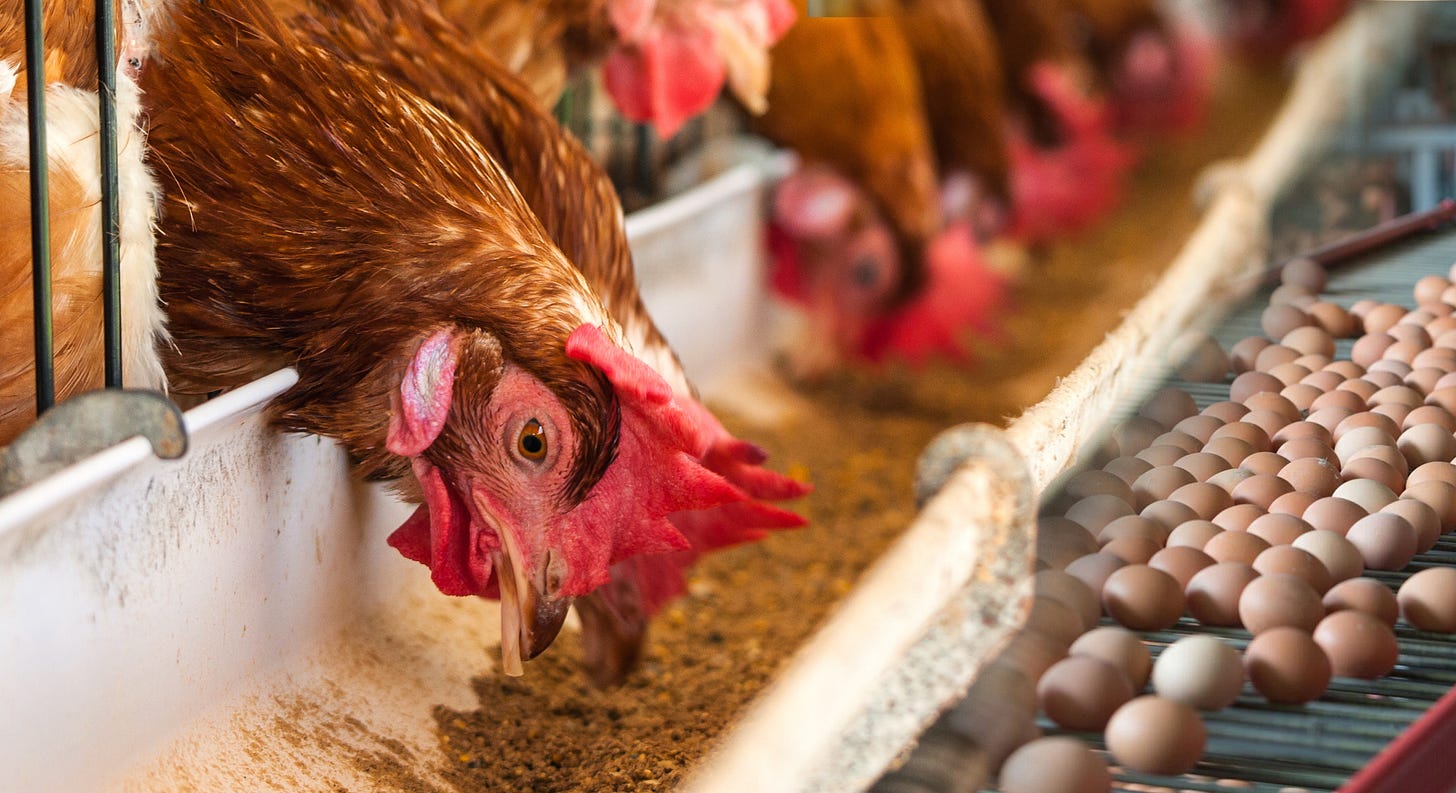Table of Contents
Scott Harrison
Scott is an IT professional and father, he’s passionate about free speech, religious freedom, and parental rights.
How many times is a ‘deadly flu’ going to be used as cover for lies and mismanagement by governments and big corporations? The avian flu is as much to blame for Australia’s current egg shortages as Covid-19 was for massive inflation. The real reason consumers are now limited to two cartons at Coles and Woolworths lies in the cosy relationship between big government and its corporate allies.

As Australian families struggle to put food on the table, government ministers and CEOs are making basic essentials like eggs scarce and expensive. What should infuriate us all is that these shortages and price hikes aren’t just avoidable – they’re intentional.
Personally, I’m blessed that I rarely need to buy eggs. My family has a productive suburban flock that feeds at least three households. This arrangement works well for my weightlifting goals, as eggs are the perfect source of high-quality protein. The downside? I can easily put away four to six eggs a day, and the backyard hens can’t always keep up.
Shortages are synonymous with socialism and centrally planned economies.
So, I recently found myself at Coles, trying to buy four dozen eggs. The self-serve checkout wouldn’t let me. An attendant came over, scanned the barcode, and started taking two cartons away. I was taken aback.
“What are you doing?” I asked.
“You can only buy two. Otherwise, we run out by 10 am.”
“Why? Can’t Coles source more eggs?”
“It’s the bird flu. We can’t get enough eggs.”
“The bird flu? That was months ago. I don’t know what’s really going on, but I guarantee you it’s not that.”
Frustrated, I left my eggs behind and headed to the Indian grocer across the hall. Down the back was a mountain of egg cartons – $10 per dozen.
“Do you have any limits?” I asked the lady behind the counter.
She smiled slyly and shook her head. ‘As long as your money’s good, you can have as many as you want.’ She didn’t actually say that but it’s undoubtedly what she meant.
Walking home, I started googling furiously for an explanation. It didn’t take long to confirm my suspicions: the bird flu was just a convenient scapegoat for a deliberate market intervention. The three major supermarkets – Woolworths, Coles, and Aldi – had agreed to stop stocking cage eggs by the end of 2024. On 1 January, cage eggs began disappearing from shelves, forcing consumers who previously bought them to switch to barn laid and free-range alternatives.
Suddenly, there was greater demand for fewer eggs and voilà – a ‘national egg shortage’ was born. Yes, avian flu affected free-range flocks, but cage egg production was largely untouched. The real shortage wasn’t in eggs; it was in retailers willing to sell them.
Why should you care?
I get it – an egg shortage might seem like a minor inconvenience. Since that day, I’ve found plenty at my local IGA. But it’s not just about eggs. The bigger issue is the normalisation of ‘shortages’ caused by government and corporate intervention.
The great achievement of free markets is their ability to eliminate scarcity.
In functioning, prosperous societies, shortages shouldn’t exist. When we think of shortages and rationing, we think of the Soviet Union – not modern Australia. Shortages are synonymous with socialism and centrally planned economies. They’re the opposite of what capitalism is designed to prevent. The great achievement of free markets is their ability to eliminate scarcity.
So, when I see shortages creeping into our capitalist society – alongside spiralling government debt, massive inflation, rising taxes, and basic essentials disappearing – I get worried. You should be, too.
“Wait a minute,” I hear you say. “Cage eggs? They’re unethical! It’s good they’re gone!”
If you’re not a fan of cage eggs, that’s your prerogative. You’re free to buy any other kind you like. But according to the latest statistics, cage eggs still made up 19 per cent of all eggs sold in Australia. For every four cartons of free-range or barn-laid eggs sold, one carton of cage eggs was bought.
Who buys them? Probably pensioners, single parents, and single-income families – those most affected by the rising cost of living. Cage eggs are usually two dollars or more cheaper per dozen than free-range ones. For many low-income households, that price difference matters.
Now, these households are forced to pay more at the supermarket – and they’re limited to two cartons.
I hope the virtue signalling was worth it.
This article was originally published by Liberty Itch.








